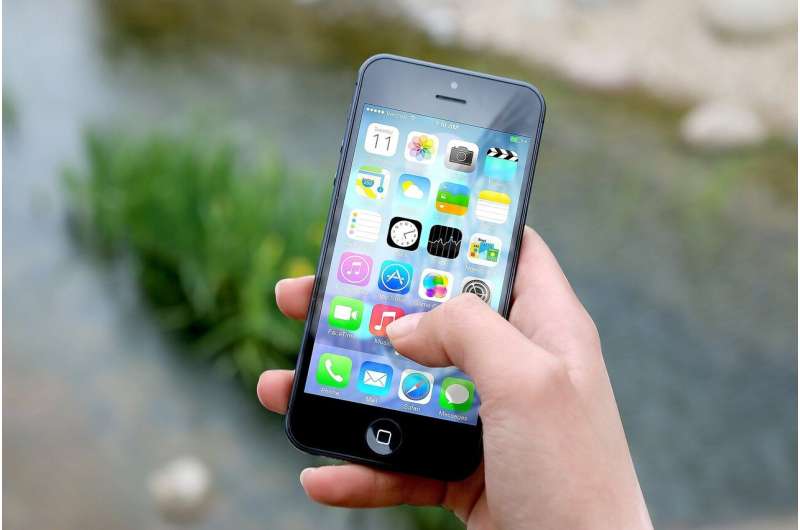This article has been reviewed according to Science X's editorial process and policies. Editors have highlighted the following attributes while ensuring the content's credibility:
fact-checked
trusted source
proofread
Hybrid model of mental health care yields improvements in depression and anxiety

Over the past decade, demand for mental health services has risen significantly, with the number of adults receiving psychiatric care increasing by more than 12 percent since 2011, according to the National Alliance for Mental Illness. However, a shortage of mental health clinicians means many people are still not able to access the care they need.
Digital technologies, including telehealth appointments and behavior-modifying smart phone apps, may help address clinician shortages, but questions remain on the effectiveness of these digital solutions and how they compare to traditional clinician-led treatment.
In a case study published in NEJM Catalyst, clinician-investigators in the Division of Digital Psychiatry at Beth Israel Deaconess Medical Center (BIDMC) highlight a model they developed for integrating digital technologies and brief evidence-based treatment into in-person psychiatric.
Known as the Digital Clinic, the team's innovative hybrid care model expands patients' access to highly effective mental health care while significantly decreasing patient wait times and length of treatment. Additionally, the team's recent pilot study suggests that this model may yield post-treatment improvements in patients' symptoms of depression and anxiety that are comparable to, if not better than, traditional models of care.
"As the severity of mental health crises increases, evidenced by rising rates of depression and anxiety especially in young people, it's critical that innovative solutions are developed to increase access to high-quality psychiatric care," said senior author John Torous, MD, MBI, director of the Division of Digital Psychiatry at BIDMC. "Our encouraging findings suggest that when we target depression and anxiety with brief, technology-enhanced, evidence-based treatment, our patients can obtain meaningful gains."
Patients seen in this model have a weekly hour-long virtual visit with their clinician and are provided with digital support between visits. The Digital Clinic relies on the use of mindLAMP, an opensource smartphone app designed by Torous and colleagues at BIDMC. MindLAMP passively collects data that might indicate the user's state of mind; for example, a sudden increase in late-night scrolling could indicate trouble sleeping, a symptom of mental illness that's often overlooked.
The app also actively engages patients to monitor their own symptoms and behavioral patterns in real time, practice mindfulness and other skills they learn in session, set goals and track progress or keep a journal.
Prior to an upcoming weekly virtual visit, a Digital Navigator—a new care team member—reviews patient data gathered by the app, supports app engagement, and shares insights with the clinician. The Digital Navigator is one way the model is intended to reduce any burden of data-driven care on clinicians while addressing the needs of patients—particularly aiding patients with lower digital literacy. The Navigator maintains patients' engagement with frequent check-ins and any assistance needed with the app.
Between March 2022 and March 2023, Torous and colleagues received more than 300 referrals from primary care physicians and treated more than 150 patients in the Digital Clinic. Currently, the model employs an 8-week course of treatment and minimizes the need for a wait list. Patients are now seen by the Digital Clinic within two weeks of referral, far less than in the traditional care models in which wait times can exceed three months.
In a recent pilot study of 40 adult patients who received eight weeks of treatment for depression and/or anxiety in the Digital Clinic between October 2022 and January 2023, 67 percent of patients' mental health outcomes that were targeted in treatment reflected clinically significant improvement. Notably, 64 percent of those patient outcomes reflected remission, defined as having "mild, minimal or no symptoms" by the end of treatment.
"These outcomes meet and exceed outcomes from longer-term treatment," said Torous, who added that recent meta-analyses of mainly mainstream, evidence-based treatments found remission rates of just over half for anxiety disorders and roughly one third for depression.
Likewise, studies have shown that digital approaches to mental health can yield impressive results when patients consistently engage with them, but decades of user-centered design and gamification have not solved the problem of keeping people regularly interacting with the technology long term.
"We designed the Digital Clinic to harness the strengths of both traditional and digital mental health care," said first author Natalia Macrynikola, Ph.D., a postdoctoral research fellow at BIDMC.
"The benefits of human rapport, the therapeutic alliance, and a therapist's ability to tailor evidenced-based therapeutic interventions to the needs of each client are tangible advantages of traditional care, whereas the scalability and accessibility of digital approaches confer clear advantages that should not be overlooked."
More information: Natalia Macrynikola et al, The Digital Clinic: An Innovative Mental Health Care Delivery Model Utilizing Hybrid Synchronous and Asynchronous Treatment, NEJM Catalyst (2023). DOI: 10.1056/CAT.23.0100

















